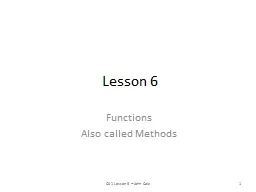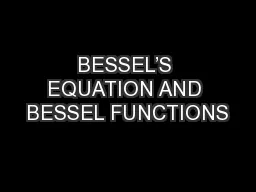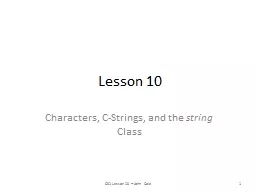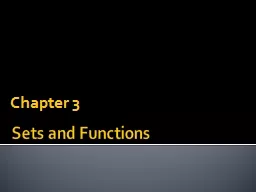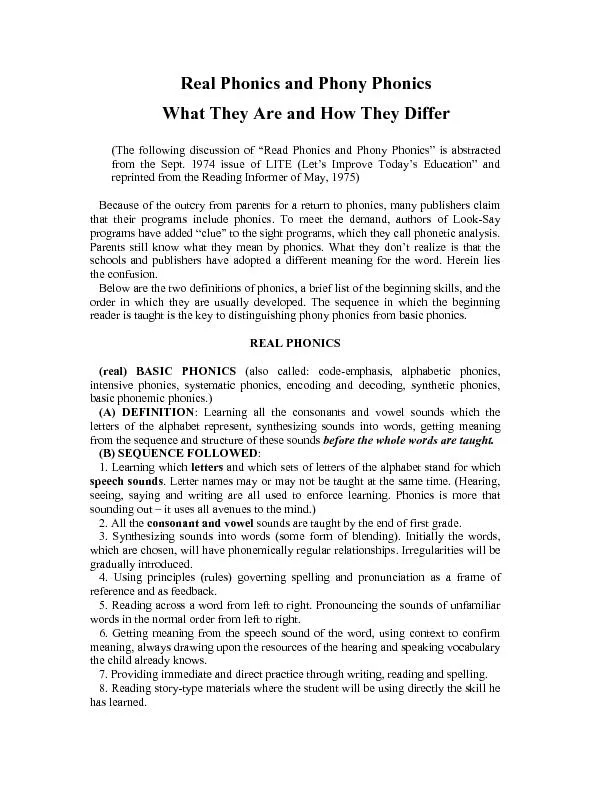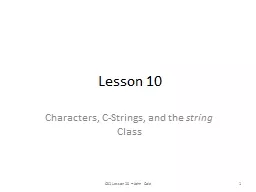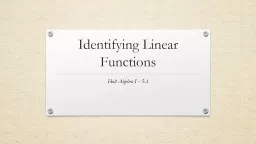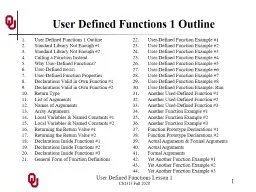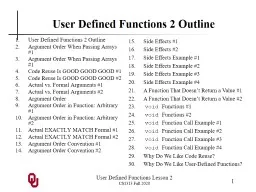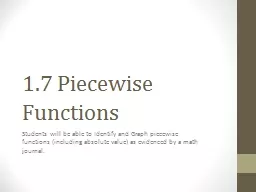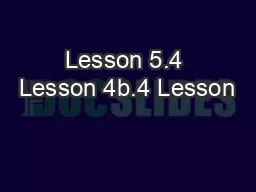PPT-Lesson 6 Functions Also called Methods
Author : celsa-spraggs | Published Date : 2018-03-07
CS 1 Lesson 6 John Cole 1 Modular Programming Modular programming breaking a program up into smaller manageable functions or modules Function a collection of
Presentation Embed Code
Download Presentation
Download Presentation The PPT/PDF document "Lesson 6 Functions Also called Methods" is the property of its rightful owner. Permission is granted to download and print the materials on this website for personal, non-commercial use only, and to display it on your personal computer provided you do not modify the materials and that you retain all copyright notices contained in the materials. By downloading content from our website, you accept the terms of this agreement.
Lesson 6 Functions Also called Methods: Transcript
Download Rules Of Document
"Lesson 6 Functions Also called Methods"The content belongs to its owner. You may download and print it for personal use, without modification, and keep all copyright notices. By downloading, you agree to these terms.
Related Documents

